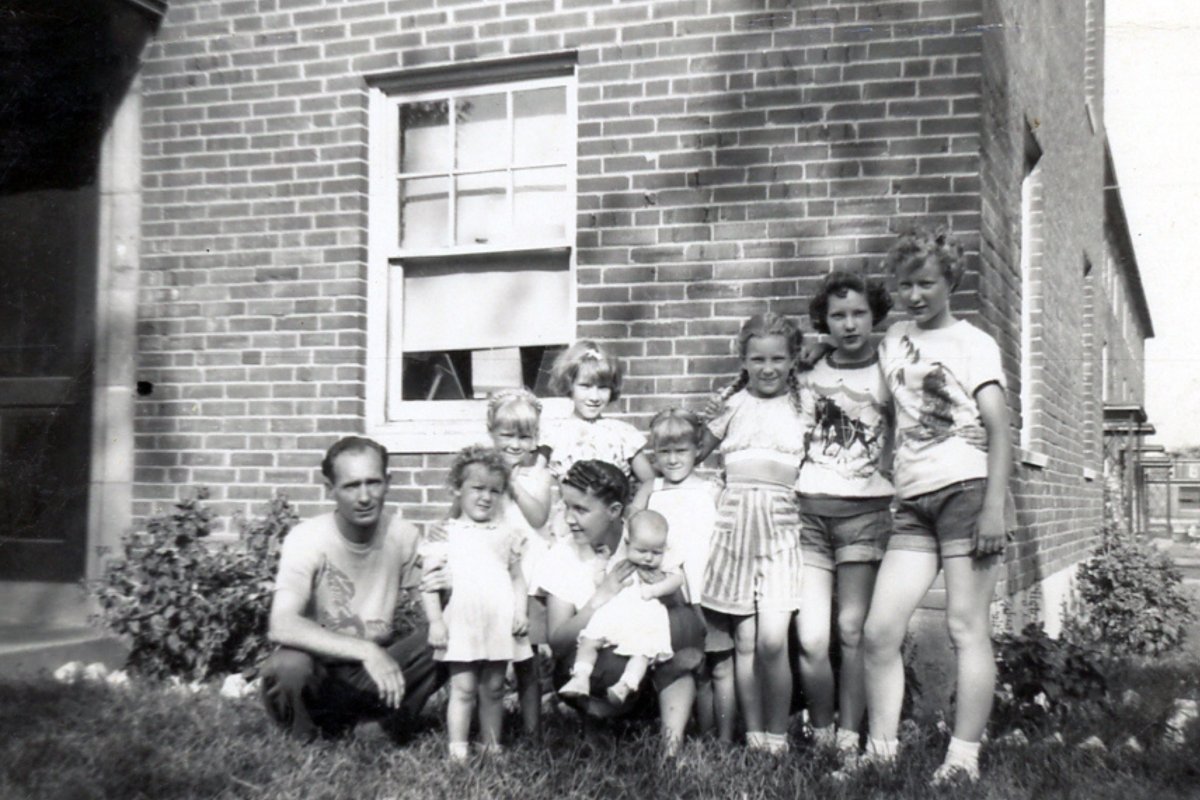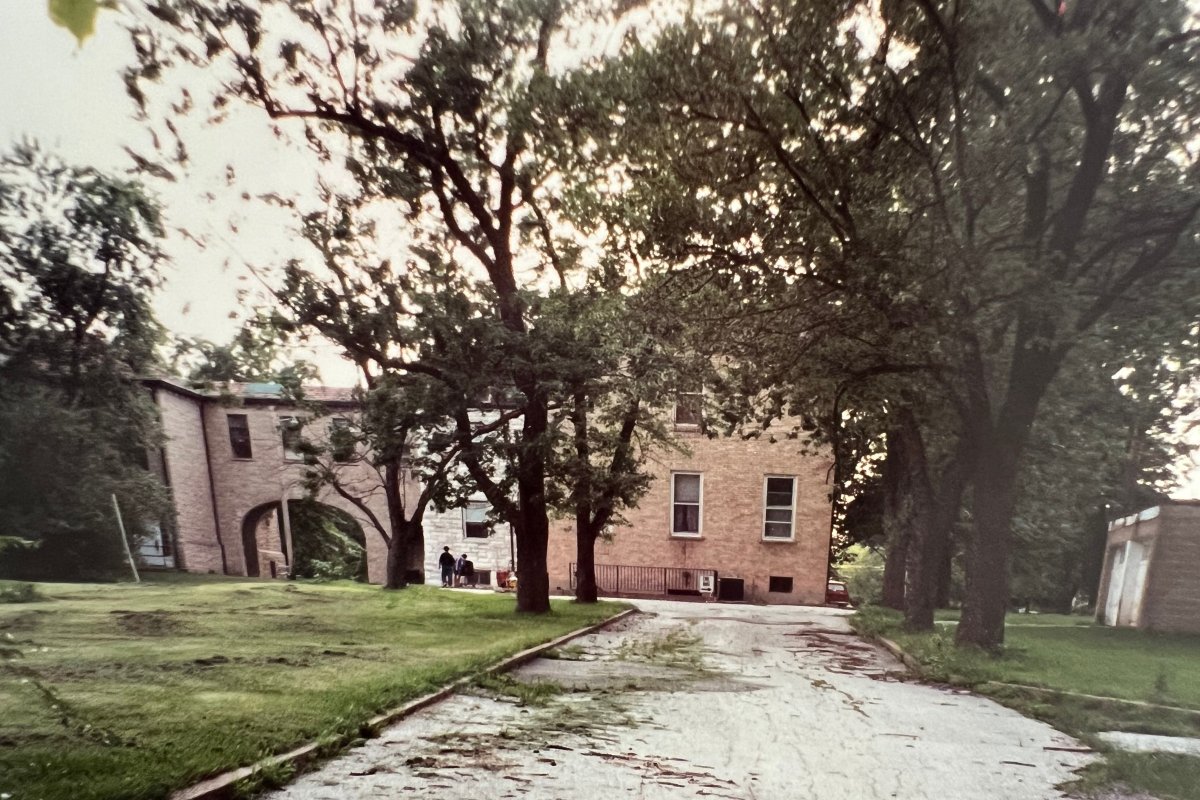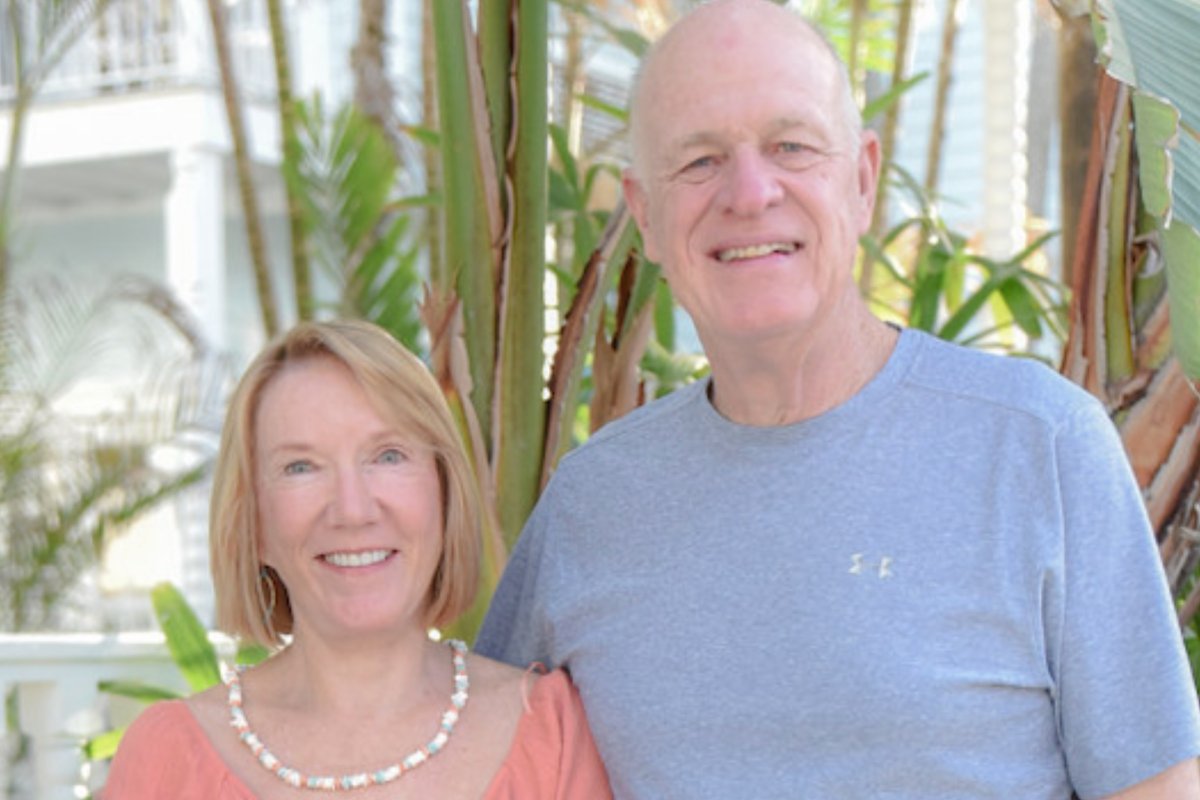I spent nine months in an orphanage before I was placed into a foster home along with one of my sisters, Kay. Even though the time spent there was brief, I held tight to the memories we created: stormy Midwestern nights when I would get into my sister Bobby's cot for safety and comfort.
The twins, Mickey and Vickey, eating the food I didn't like right off my tray so that I wouldn't have to spend the night in the dark in the orphanage's cafeteria—till I ate every bite.
Walking down the long halls of the dormitory while holding hands with Kay, the sister I grew up with. Heading toward the little chapel where I would delight in the nun's chanting and singing while feeling my body sway in rhythm with them.

Playing gleefully with a single roller skate, taking turns pulling each other down the paved driveway with one foot in a skate and one held up high in the air.
I don't remember any other children there. If there were, I was too sister-focused to notice.
I remember sisters humming to me, rocking me, and caring for me, and if I close my eyes, I can still see some of us at St. Dominic's Orphanage, playing in the yard, arm in arm.
Even though I was separated from the older sisters by the age of three, I never forgot their names. Each name was etched in my mind, in order of birth: Ruth, Ellen, LaVerne, Annie, Bobby, Vickey, Mickey, Kay, Pammy and me—Barbie Sue. I don't know where the ability to remember them came from.
Perhaps a sister taught them to me, reciting their names to me at bedtime in the orphanage, as a story. Or perhaps an angel whispered them into my ear. I do not know.
I remember one particularly hot summer's day and a mound of sorts on the grass in front of the orphanage. It overlooked a long driveway. I must have visited with my mother there once. I can think of no other reason a three-year-old would be drawn to a location that held no other meaning or memory.
I liked to go and stand on that mound, perhaps waiting for my mother's return, until it became the spot where I stood and watched several of my sisters leave the orphanage, one by one, taken by taxi, one of the holy nuns, or picked up by strangers.
I didn't know where they were going as they held small suitcases in their hands. I was too young to understand the concept of foster care. To me, they were just gone, scattered in the wind.
Eventually, Kay and I left the orphanage in the same manner.
"Why you leavin' me here?" I asked the holy nuns. "Why you leavin' me here? I don't know them. They ain't never seen me."

I was soon to turn four, my sister, Kay, was six when we were dropped off into foster care. "Where'd my sisters go?" I asked the strangers. A question that remained unanswered for the next forty-three years.
I was too young. It was so long ago. I can't remember the exact questions I asked, but I do know that no one would answer them.
***
We rounded a corner.
"It must be Ellen and Bernie," I exclaimed, as I saw two women standing as if on watch. August's punishing heat was engulfing them, surrounding them with fiery waves that shimmered up from the concrete driveway.
I opened the car door before we even entered the drive. I flew out of the back seat with Kay following close behind. My knees gave way as I flung myself into the arms of my sisters. I was in a free fall, as if jumping from a plane, without a thought whether the parachute would open—if they would catch me.
Yet, they did catch me, and their embrace awakened my remembrance of their smell and their touch; I knew them. Time seemed to collapse upon itself, and I became a toddler hearing my sisters calling out to me as Barbie Sue. I became Barbie Sue.
Any and everything that had happened since our separation disappeared as if I were transported back through a time machine. And crying—everyone crying—including Kay, who didn't shed tears freely or often. Later, she was to tell me that the moment she felt Bernie's touch, her body remembered her, eliciting an emotional response: the flow of her frequently inhibited tears.
I felt rebirthed. I allowed myself to believe the unbelievable: the truth of miracles—wishes upon a star sent by my fourteen-year-old self. I reveled in the power brought forth from maintaining belief in the hope found at the bottom of Pandora's box.
Together, our sisters took stock of Kay and me by examining our fingers, noses, and ears with the clear recognition that we were truly their lost little siblings.
Tears were falling down my face, washing away years of sadness. They felt different, no longer wasted as those I had shed for most of my life. They were healing and renewing—a font of life. Bernie and Ellen tenderly dried my eyes with their already drenched tissues.
And Kay—tears replaced with a grin as big as Texas. Her joy was tangible as she hugged her newly found sisters.
Out of the corner of my eye I could see my husband crying too. I saw my two younger children, Sarah, and Ryan, with joy in their eyes and grins upon their faces. I wished so much that my daughter Christine could have been there as well.
"Git inside. Thar are more of us in thar," Ellen said.
More of us. Each sister had tucked their essence into my heart long, long ago. My older sisters had protected me, loved me, cared for me. And now, there were more of us.
Kay and I, once again hand in hand, walked through Cheryl's home and out to her back deck. There, we reconnected with our eldest sister, Ruth, and two additional sisters who were placed in the orphanage with Kay and me: Annie and Vickey.
Cameras were flashing, and other guests I didn't even know were watching and hanging around. Everyone was smiling and crying at the same time. It wasn't just a memory anymore. I was no longer playing make-believe while speaking to them in my imagination. My sisters were real!
Ruth sat down on the porch swing and motioned for Kay and me to sit next to her. She pulled out a photo album and showed us pictures of our past: our mother, our father, and ourselves as babies and toddlers.
"This one I took of the six of you in the orphanage."
The six of us in the orphanage: words making the intangible, tangible.
"You have another sister," Ruth added. "Cindy. She is about ten years younger than you I think."
Learning that I had another sister was totally unexpected. I was so focused on the sisters I could remember that I didn't even consider the fact that our mother could have birthed more babies.
Before I had time to inquire further, Ruth pulled something out of her wallet. She looked at me and said, "I've carried this with me all these years."
She handed me a piece of paper. I opened it to find it was my original birth certificate, the one I had searched for in the small box in Leonarda's hall closet. The document, worn, yellowed, and creased from its years of being folded in Ruth's wallet, attested to a truth I had long needed to validate.
I was a Lane, born to Lucy and Robert Lane. I could claim my heritage, whatever it might entail, based upon a simple piece of paper, held in the wallet of my eldest sister for over forty years.
"You have no idea the gift you have just given me," I exclaimed. I laid my head on Ruth's lap as she tried in vain to dry my eyes.
I sat up and looked at my sisters. Bernie decided it was time to transition the mood.
"We all laugh the same way," she proclaimed, as she shifted each shoulder up, one at a time, as if to a musical score that she heard in her head. She then began singing, which made the motion of her shoulders make some sense.
"Sisters, sisters, never were there more devoted sisters," an old Rosemary Clooney song. Soon we all joined in the chorus, mimicking the same shoulder motion.
We were all transported to another time—a time before we lost each other. We were as little children again, innocent, and curious, playing hand-clapping games as we sang Miss Lucy Had a Baby. It was clear I was not the only one carrying around a younger self in need of healing.

We brought out the silliness in each of us, and then our inner children danced. It was as if we were dancing some celebratory tribal dance, except to swing music, performing the same swing dance steps that we all just somehow seemed to know.
We chattered continuously, all of us at the same time, and about absolutely nothing, with most of our spouting consisting of laughter. Yet it was enough for us and more than we could take in at the time.
As the day came to an end, my breath became depthless. I felt adrift yet anchored at the same time, wondering if our long-lost anchor would hold as our one-day reunion came to an end. Did each sister carry in her heart the secret fear I held in mine—that this might be the last time we would ever see each other?
"Don't worry, baby girl," Bernie said as if reading my mind. "Remember, we are planning a reunion for all of us in September."
The thought of parting that evening was agonizing to me, and perhaps to the others as well, as Annie declared, "The hell with this stuff. No goodbyes! Let's meet for breakfast in the morning. We have to eat, don't we?"
And so, we planned to meet again for breakfast, making it easier to leave each other so that we could go to our hotel rooms to get some rest.
No goodbyes. That became a rule we all agreed to follow, replaced with: "See you soon, Sis. See you in September."
The above is an adapted extract from Broken Water: An Extraordinary True Story (May 9, 2023), by Barbara Lane.
All views expressed in this article are the author's own.
Do you have a unique experience or personal story to share? Email the My Turn team at myturn@newsweek.com
Uncommon Knowledge
Newsweek is committed to challenging conventional wisdom and finding connections in the search for common ground.
Newsweek is committed to challenging conventional wisdom and finding connections in the search for common ground.
About the writer
To read how Newsweek uses AI as a newsroom tool, Click here.






